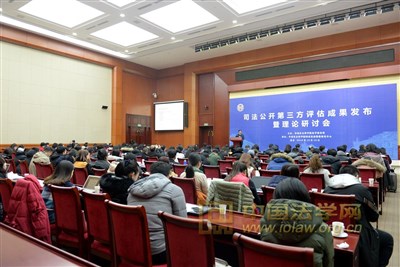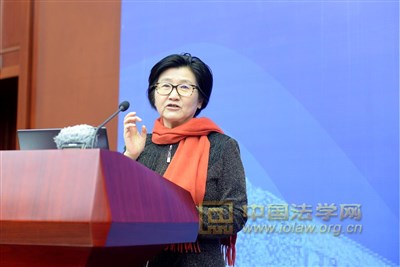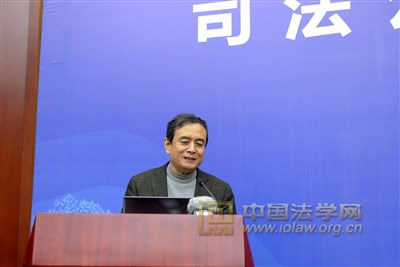
The Report on the Third-party Assessment on the Judicial Openness of Chinese Courts was released by CASS Law Institute in Beijing on December 10, 2018. The release was presided over by Professor Tian He, Director of the CASS Center for Studies of National Index of the Rule of Law. The report was released by Professor Lu Yanbin, Head of the Department of Survey and Study of National Situation of the Rule of Law. Representatives from the Higher People’s Court of Sichuan Province, the Higher People’s Court of Gansu Province, the Intermediate People’s Court of Nanjing City, the Intermediate People’s Court of Jinan City, and the Intermediate People’s Court of Nanchang City each gave a speech, in which they shared their experiences in judicial openness.

In a speech given at the ceremony, Professor Chen Su, Director of CASS Law Institute, pointed out that judicial openness is the only road to the development of the rule of law, as well as a powerful means of promoting judicial reform. It is also an important standard for evaluating the level of development of the rule of law and political civilization in a country. In recent years, the Supreme People’s Court has made persistent efforts and achieved remarkable results in advancing judicial openness, not only establishing four major platforms of judicial openness covering trial procedure, adjudicative documents, enforcement information and live streaming of court trial, but also adopting various regulations on the normalization, standardization and institutionalization of judicial openness. In order to assess the level of judicial openness, discover problems in the practice of judicial openness, and improve the quality of judicial openness, the Supreme People’s Court has entrusted CASS Law Institute to carry out third-party assessment of the judicial openness of Chinese courts. This is a very useful exploration in deepening judicial openness and advancing judicial democracy as well as an important platform for displaying the achievements of judicial work and showing the judicial self-confidence of Chinese courts. It has gained valuable experiences and provided good examples for the further deepening of the work of judicial openness in China.



